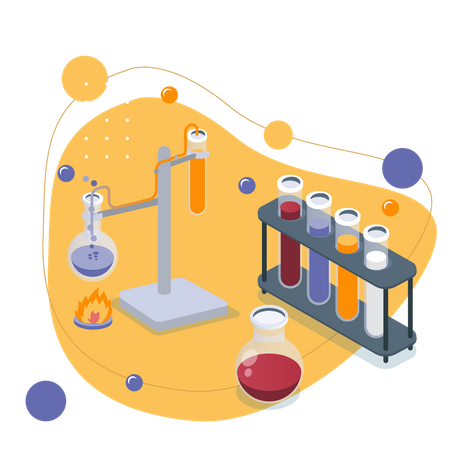Reactions of Alcohols (GCSE Chemistry)
Reactions of Alcohols
Reactions of Alcohols
- Alcohols are part of a homologous series. Alcohols have similar properties since they are all part of the same homologous series. These properties include being flammable, being water soluble and being oxidised.
- Alcohols undergo various reactions. Similar to alkenes, alcohols can all undergo various reactions. For exams, you need to know about the reactions of alcohols with sodium, air, water and oxygen.
Alcohols and Sodium
- Alcohols react with sodium to form a salt. When alcohols react with sodium, a salt will be formed plus hydrogen; bubbles of hydrogen gas will be seen. This is similar to the reaction of water with sodium, except it is far less violent. The salt formed from the reaction with sodium and ethanol is called sodium ethoxide.
Ethanol + Sodium → Sodium ethoxide + Hydrogen
Alcohols Burning in Air
- Alcohols completely combust in air. When alcohols are in the air, they can undergo complete combustion. This makes them flammable.
- Carbon dioxide and water are produced. When alcohols undergo complete combustion, carbon dioxide and water are produced. We can see the complete combustion of propanol here:
2C3H7OH + 9O2 ⟶ 6CO2 + 8H2O
Propanol + oxygen ⟶ carbon dioxide + water
Alcohols and Water
- Alcohols dissolve in water. The first four alcohols dissolve when placed into water. This means that they are soluble in water.
- The solution formed is neutral. When alcohols dissolve in water, they form a solution with a neutral pH.
Alcohols and Oxidising Agents
- Alcohols can be fully oxidised. In the presence of an oxidising agent, alcohols are fully oxidised to form the respective carboxylic acid.
- Oxidising agents are used in excess. During the reaction, the oxidising agent is used in excess. An example of an oxidising agent that can be used is potassium dichromate in the presence of dilute sulphuric acid.
Worked example: State what is formed when butanol reacts with acidified potassium dichromate.
Answer: butanoic acid
Alcohols are a type of organic chemical compound that contain a hydroxyl (-OH) group attached to a carbon atom. They are commonly used as solvents, fuels, and ingredients in a wide range of products.
The general formula of an Alcohol is CnH2n+1OH, where n represents the number of carbon atoms in the molecule.
The different types of Alcohols include Primary Alcohols, Secondary Alcohols, and Tertiary Alcohols, which are differentiated based on the type of carbon atom to which the hydroxyl group is attached.
Alcohols are classified as either methanol (1 carbon atom), ethanol (2 carbon atoms), propanol (3 carbon atoms), butanol (4 carbon atoms), and so on, based on the number of carbon atoms they contain.
An oxidation reaction of Alcohols is a chemical reaction in which the alcohol molecule is converted into a more highly oxidized compound, such as an aldehyde or a carboxylic acid.
Dehydrogenation reaction of Alcohols is a chemical reaction in which the alcohol molecule loses a hydrogen atom, typically to form a more highly oxidized compound, such as an aldehyde or a ketone.
The reaction of Alcohols with Carboxylic Acids results in the formation of an ester, a type of organic compound commonly used as fragrances and flavors.
It is important to study the Reactions of Alcohols in GCSE Chemistry because Alcohols are widely used in industry and are an important class of organic compounds with a wide range of applications. Understanding the chemical reactions of Alcohols is also important for gaining a deeper understanding of organic chemistry and the chemical processes involved in the production of a wide range of products.






Still got a question? Leave a comment
Leave a comment